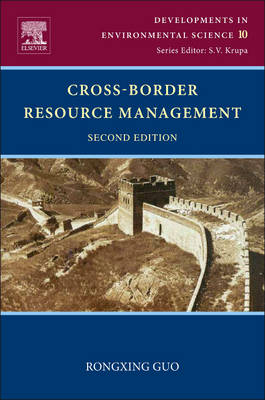Developments in Environmental Science
1 primary work
Book 4
In discussing theoretical and analytical issues relating to cross-border resource management, this book explores a group of geographical, political, legal, economic and cultural factors that arise when political units (such as sovereign countries, dependent states and other administrative units) seek to maximize their political and economic interests while minimizing the resultant damage (e.g. resource degradation and preservation of the physical environment).
The book is organized into three parts. Part one discusses the theoretical issues relating to cross-border development and the cross-border management of natural and environmental resources. Part two provides a variety of alternatives to advancing cross-border development as well as of options for cross-border management of resource exploitation and for cross-border conflict management. In Part three, using the theoretical and methodological frameworks that have been discussed in Parts one and two, respectively, two in-depth case studies on cross-border development and resource management are provided.
The book is organized into three parts. Part one discusses the theoretical issues relating to cross-border development and the cross-border management of natural and environmental resources. Part two provides a variety of alternatives to advancing cross-border development as well as of options for cross-border management of resource exploitation and for cross-border conflict management. In Part three, using the theoretical and methodological frameworks that have been discussed in Parts one and two, respectively, two in-depth case studies on cross-border development and resource management are provided.
